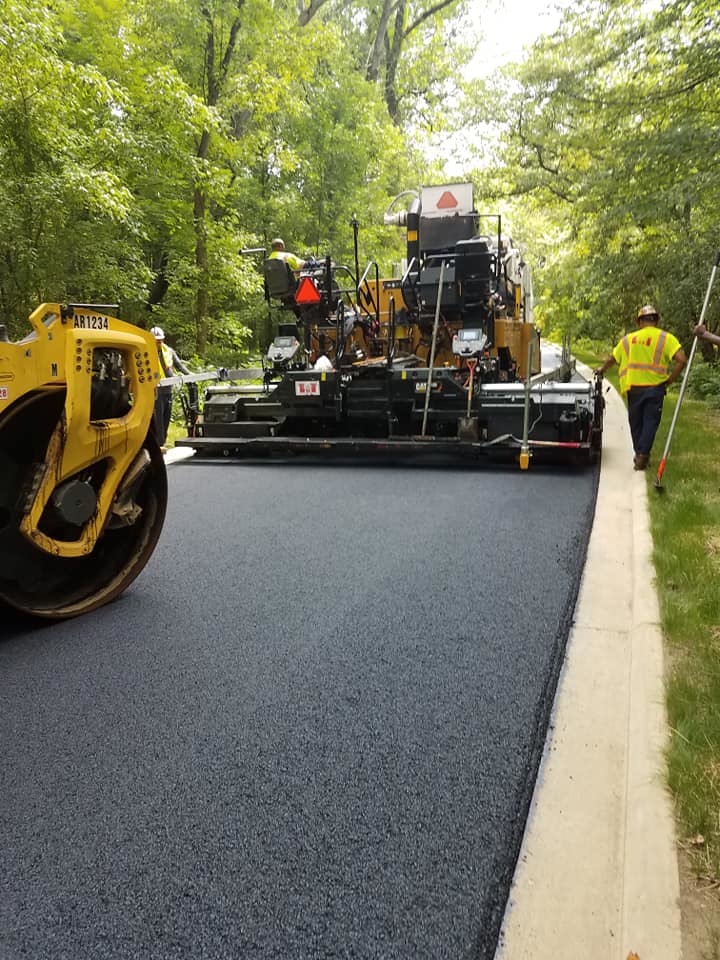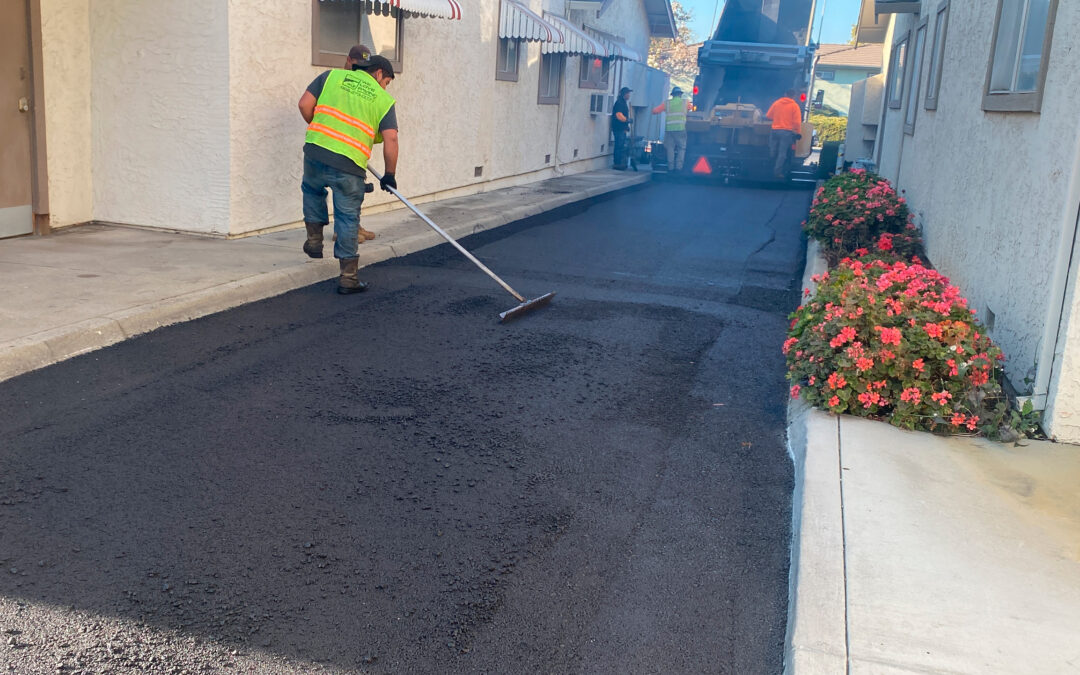Enhance Your Property with Asphalt Paving Acworth GA: Trusted Local Contractors
Enhance Your Property with Asphalt Paving Acworth GA: Trusted Local Contractors
Blog Article
Recognizing the Different Kinds Of Asphalt Paving Available Today
In the world of building and construction and framework, a detailed understanding of the numerous types of asphalt paving is critical for optimal project outcomes. From the durable Hot Mix Asphalt, designed for high-traffic areas, to the environmentally conscious Porous Asphalt that assists in water monitoring, each kind provides distinctive benefits customized to specific requirements.

Hot Mix Asphalt
What makes hot mix asphalt a recommended selection for roadway building and fixings? Hot mix asphalt (HMA) is favored for its toughness, versatility, and efficiency under differing conditions. Composed of a mix of aggregates and liquid asphalt concrete, HMA is created at high temperatures, usually in between 300 ° F and 350 ° F (asphalt paving acworth ga). This high-temperature application enables ideal bonding and compaction, resulting in a smooth, resilient surface that can endure hefty traffic lots and unfavorable weather.
HMA's capacity to be customized to particular project needs is another significant advantage. Various gradations and formulas can be utilized to improve residential properties such as flexibility, resistance to contortion, and durability. In addition, warm mix asphalt can be swiftly installed and available to web traffic, minimizing disturbance throughout building and construction.
Ecological factors to consider additionally play a function in the preference for HMA. The material is recyclable, and reclaimed asphalt sidewalk (RAP) can be recycled, promoting sustainability in roadway building and construction practices. Overall, warm mix asphalt attracts attention as a trusted alternative, properly giving a durable, high-performance surface area that fulfills the demands of modern infrastructure.
Cold Mix Asphalt
Cold mix asphalt is a flexible choice to hot mix asphalt, particularly fit for specific applications such as patching and surface treatments. This kind of asphalt is created at ambient temperature levels, enabling for easier handling and application without the requirement for extensive heating devices.
Normally composed of asphalt solutions or lowerings, cool mix asphalt can be combined on-site or bought pre-mixed. Its residential or commercial properties enable it to bind well with existing sidewalk, making it an effective remedy for fixing potholes, fractures, and various other surface flaws. In addition, it can be applied in a variety of weather, giving a useful choice for year-round maintenance.

Nonetheless, while cold mix asphalt is excellent for momentary fixes, it might not give the exact same durability or resilience as warm mix asphalt under hefty website traffic problems. As such, it is finest used for low-traffic areas or as a short-lived service up until more permanent repairs can be carried out.
Warm Mix Asphalt
While hot mix asphalt has long been the criterion for roadway building, warm mix asphalt (WMA) has actually become an innovative alternative that balances efficiency with environmental considerations. WMA is created at significantly lower temperature levels-- usually between 215 ° F and 275 ° F-- compared to warm mix asphalt, which is heated to around 300 ° F. This reduction in temperature level not just decreases power intake however also reduces greenhouse gas exhausts during production.
The innovation behind WMA entails making use of additives or methods that make it possible for better workability at lower temperature levels. These can include chemical additives, foaming procedures, or a mix of both. Consequently, WMA maintains the essential homes for resilience and performance while supplying a more eco-friendly alternative.

Porous Asphalt
Porous asphalt stands for a forward-thinking method in pavement layout, prioritizing both capability and environmental sustainability. This ingenious material is particularly crafted to permit water to penetrate via its surface area, efficiently reducing runoff and advertising groundwater recharge. As an outcome, permeable asphalt is an excellent selection for areas vulnerable to flooding or where stormwater administration is vital.
The structure of permeable Going Here asphalt varies from conventional asphalt, featuring a greater percent of voids that help with drain. This residential or commercial property not just lessens surface area water buildup however also assists mitigate issues like hydroplaning and improves vehicle grip during damp problems. asphalt paving acworth ga. In addition, permeable asphalt can add to urban heat island decrease, as it permits higher evaporation and cooling results in urban atmospheres
In terms of installation, permeable asphalt needs mindful consideration of underlying drain systems to ensure optimal performance. Maintenance generally includes normal assessments and cleaning up to stop clogging from particles, which can harm its permeability. Overall, permeable asphalt functions as a lasting paving remedy that lines up with modern environmental objectives, making it an increasingly preferred option for both public and personal jobs.
Rubberized Asphalt
Rubberized asphalt is an advanced paving you can look here product that incorporates recycled rubber, generally sourced from scrap tires, right into the asphalt mix. This cutting-edge approach not only boosts the efficiency of typical asphalt but additionally promotes environmental sustainability by recycling waste materials. The addition of rubber enhances the flexibility and sturdiness of the pavement, making it immune to splitting and deformation under varying temperature level problems.
One of the significant advantages of rubberized asphalt is its capability to lower sound pollution. The rubber particles absorb noise, leading to quieter roads, which is particularly valuable in urban locations. In addition, this kind of asphalt gives enhanced skid resistance, boosting safety and security for automobiles.
Rubberized asphalt likewise adds to extending the lifespan of roadway surfaces, bring about decreased upkeep prices over time. This longevity is specifically useful for high-traffic areas where wear and tear are accelerated. Furthermore, its resistance to wetness penetration assists minimize the threat of water damages, additionally improving longevity.
Conclusion
In recap, the range of asphalt paving types-- Warm Mix Asphalt, Cold Mix Asphalt, Warm Mix Asphalt, Porous Asphalt, and Rubberized Asphalt-- each satisfy More Help distinct features that satisfy diverse construction and maintenance demands. These alternatives not only improve road quality but additionally add to sustainability through reduced energy intake and enhanced water management. Recognizing these distinctions is vital for choosing the appropriate asphalt kind, eventually ensuring efficient and effective paving services in numerous settings.
From the durable Hot Mix Asphalt, designed for high-traffic locations, to the environmentally aware Porous Asphalt that helps with water management, each type presents distinctive benefits tailored to specific requirements.Commonly composed of asphalt solutions or lowerings, cold mix asphalt can be mixed on-site or acquired pre-mixed.While hot mix asphalt has actually long been the criterion for roadway building, warm mix asphalt (WMA) has arised as an innovative alternative that balances performance with ecological considerations.Rubberized asphalt is an advanced paving product that integrates recycled rubber, typically sourced from scrap tires, into the asphalt mix.In summary, the selection of asphalt paving kinds-- Hot Mix Asphalt, Cold Mix Asphalt, Cozy Mix Asphalt, Porous Asphalt, and Rubberized Asphalt-- each satisfy distinct features that provide to varied building and construction and upkeep requirements.
Report this page